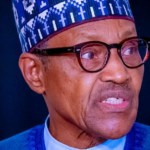The Independent National Electoral Commission (INEC) disclosed recently that about 107 political associations have applied for registration as political parties to participate in the 2023 general elections.
This was in response to a request by a national daily under the Freedom of Information Act forwarded to the Deputy Director SERVICOM of INEC on the preparations by the electoral body for next year’s general elections.
The letter in response to the request stated that “In reference to your letter dated December 9, 2021, the commission wishes to inform you that from December 2019 to December 14, 2021, a total of 101 political associations have forwarded their letters of intent to be registered as political parties.”
From our political antecedents since the dawn of the present political dispensation in 1999, it has become the norm for political associations to seek registration especially as general elections approach. All too often in their desire to be considered and registered as genuine political parties eligible to participate in the elections, such associations make outlandish claims of membership and infrastructural facilities across the country which are not backed by physical evidence.
Although registration of political associations is covered under the freedom of association articles enshrined in the constitution, Nigerians are concerned that too many political parties make the management of elections cumbersome and unwieldy.
No less a personality than the INEC Chairman, Professor Mahmud Yakubu, has expressed his misgivings on this in a message to the Election Reform Roundtable organised by the Nigerian Civil Society Situation Room in conjunction with the Kofi Annan Foundation which took place last June.
“As of today, the number of political parties fighting to be registered can be said to be more than the number of political parties already in existence.
“The implication is that if we register all the political associations that have applied for registration, we are going to go into the 2023 general elections with over 200 political parties. I do not know whether this is really what the Nigerian people need,’’ he said.
Like most Nigerians we believe the INEC chairman’s position is germane for a number of reasons.
From our experience, having many political parties on the ballot has a tendency to confuse voters and increase the cost of elections. This comes in the form of printing costs of ballot papers and election materials, logistics of registration exercise including monitoring and verification of the parties.
Secondly available data indicate that the registration of so many parties for election does not necessarily improve or afford the variety of choice Nigerians crave for between the major parties on one hand and the new ones. For instance in the 2015 elections, a total of 28,587,564 votes were cast out of which the two major parties, the opposition All Progressives Congress (APC) and the ruling Peoples Democratic Party (PDP) scored 15,424,921 or 53 per cent and 12,853,162 or 44 per cent respectively leaving three per cent to other parties.
Similarly in the 2019 elections, a total of 27,324,583 votes were cast out of which the ruling APC scored 15,191,847 votes to PDP’s 11,262,978 votes. Again, the two major parties had a combined score of 96 per cent of the total votes cast and other parties shared four per cent. These figures clearly show that for whatever the reasons it was done, the registration of parties for especially the presidential election had little or no appreciable impact in improving the quality of choice available to the Nigerian voters.
Moreover, INEC deregistered 31 parties in 2012 out of the 63 it had while after the 2019 polls, 74 parties had their registration certificates withdrawn out of the 91 because they could not win any seat at any level of the elections.
We believe that ensuring the integrity of the electoral process should be the paramount consideration with regards to elections in Nigeria. In this regard, we agree with the suggestion by the INEC chairman and Nigerians that the time has come to review the laws governing electoral process in the country to allow for an efficient conduct of elections. In doing this, we will suggest that rather than register a huge number of parties for the presidential elections, INEC should register such parties based on their comparative strength either at local or state levels. That way, the parties can begin to build based on their performances at the local level graduating to contest elections at the national level on merit as the case may be. INEC should consider the use of data base from the National Identity Card and the voters registration to verify the claims of membership of parties to determine whether they qualify for registration or not.
All this should be done before the 2023 elections to streamline and improve the electoral process.

 Join Daily Trust WhatsApp Community For Quick Access To News and Happenings Around You.
Join Daily Trust WhatsApp Community For Quick Access To News and Happenings Around You.


